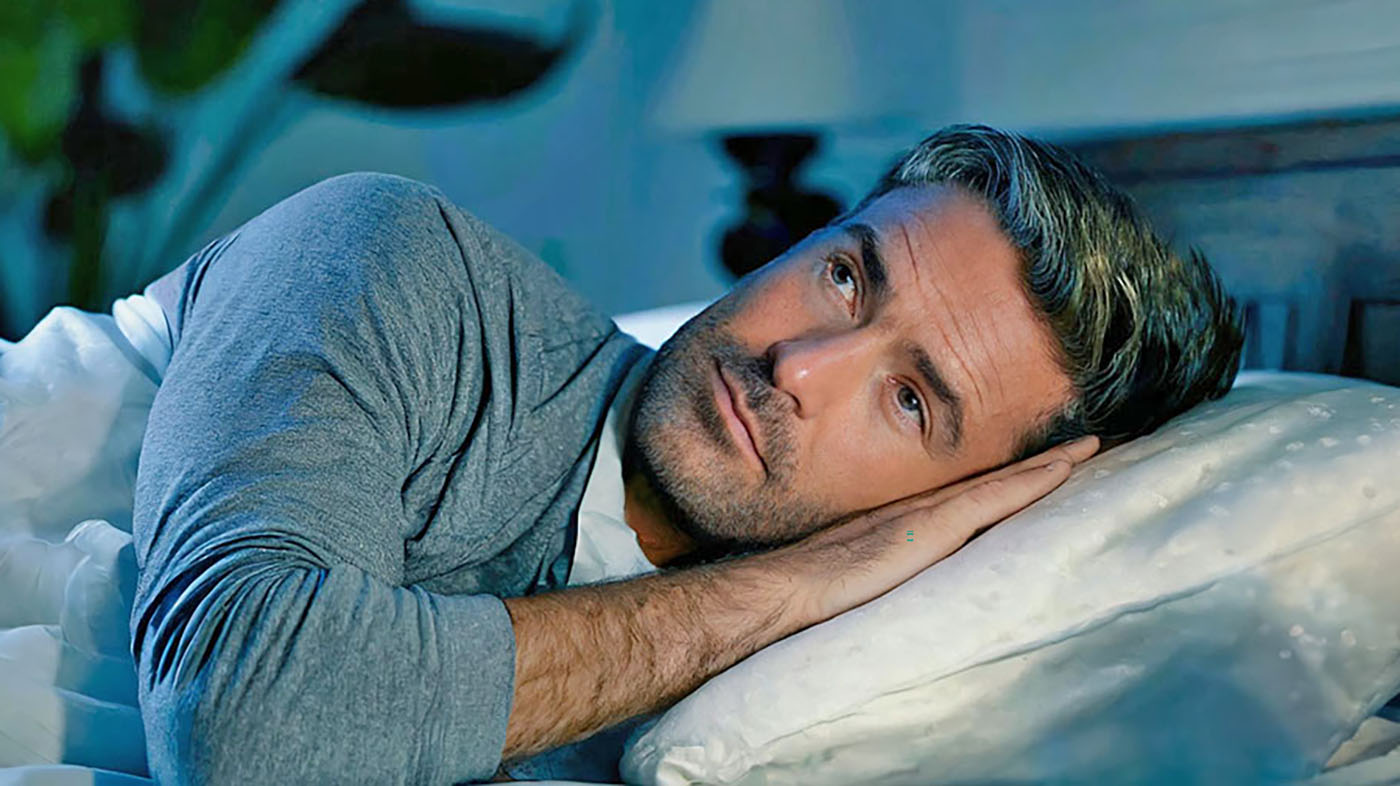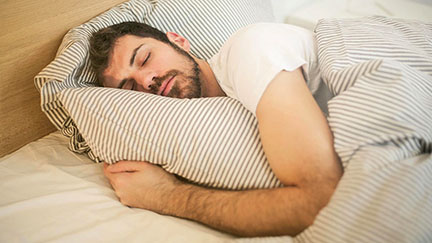Approximately 15% of men and 5% of women in America have obstructive sleep apnea. Between 10 and 15% of adults have chronic insomnia with daytime consequences.
Good sleep is pivotal to your overall health. Although many Veterans deal with the consequences of poor sleep every day, there are solutions to sleep issues. Through VA, Veterans can access virtual sleep resources.
Here are four resources you can use today to improve your sleep quality:
1. Path to Better Sleep course
VA’s Path to Better Sleep course provides free training on various sleep issues. These trainings help you better understand and manage your sleep.
The program has four modules:
- Sleep Check-up: A five-minute questionnaire can help identify possible sleep problems and suggest treatment options.
- Sleep 101: Examine sleep-interfering behaviors and gain tips to develop better sleep habits.
- SleepEZ: If you struggle with insomnia, you can learn how to manage it with digital cognitive behavioral therapy for insomnia (dCBT-i).
- BreatheEZ: Get a Veteran’s point of view about sleep apnea and how their experience getting tested and receiving treatment.
While the course is a helpful supplement, it is not intended to replace treatment. Always consult your VA health care team first.
2. Insomnia Coach and CBT-i Coach apps
Right after sleep apnea, insomnia is the second most common sleep issue Veterans face. VA has two apps that provide treatment-based support:
- Insomnia Coach offers a five-week training plan based on cognitive behavioral therapy for insomnia (CBT-i). The training plan aims to regulate your sleep and reduce how often you wake up involuntarily. Insomnia Coach has strategies to improve the quality of your sleep, adopt better sleep habits and more.
- If you’re already participating in CBT-i with your health care team, CBT-i Coach can supplement your therapy sessions. The app contains a diary to note changes in your sleep patterns, a personalized “sleep prescription” with sleep and wake times, motivational messages and tips to reduce your caffeine intake.
3. Annie for Veterans
Annie for Veterans is a text messaging service that empowers Veterans to take an active role in their health care with automated self-care reminders. Veterans can register for two Annie health subscriptions that help address sleeping difficulties:
- CPAP Use Reminder: Veterans with sleep apnea can expect eight texts a week reminding them to use their CPAP machine at bedtime.
- Master Sleep Diary: Veterans receive nine reminders a day over a month to track their sleep patterns and issues in a virtual sleep diary.
4. Mindfulness Coach app
Mindfulness means zeroing in on the present moment without distraction or judgment. It can be used to reduce stress, boost focus and cope with symptoms of anxiety and depression, which can significantly affect how well you rest. The Mindfulness Coach app offers a 14-level training plan that contains breathing exercises, guided meditations and more.
Better sleep can improve your overall health and quality of life. Connect with your VA care team to learn more about improving sleep through telehealth tools.
Topics in this story
More Stories
The Medical Foster Home program offers Veterans an alternative to nursing homes.
Watch the Under Secretary for Health and a panel of experts discuss VA Health Connect tele-emergency care.
The 2024 National Veteran Suicide Prevention Annual Report provides the foundation for VA’s suicide prevention programs and initiatives.








I have lost weight, when can I stop using the cap-machine?
I have applied two times for sleep apnea. And have been denied both times, the second time I included a buddy statement.I currently have a bipap machine . When I was getting out in 2004 the doctor I saw asked me if I have any problems sleeping I told him no and that I can fall asleep anywhere and anytime of the day. Which should have been a clue that I don’t sleep good. I didn’t realize how bad I snored until my wife who I have been married to since 2008 told me how loud I snored. I have had two sleep studies one in 2016 and the other in 2023.
Need more information
I am a Marine Corps veteran, I was diagnosed with sleep apnea some time ago. I was tested by VA and was found to have 32 sleep disorders per hour. I was placed on a C-pap machine. And after starting treatments as prescribed. My disorders reduced from 32 per hour to around 1 per eight hours! WOW, what a great difference it made for me! I would highly recommend these treatments to anyone. I really enjoy using the machine every night! Respectfully submitted!
Thankyou VA for the helpful article on sleep apnea and how it affects daily life.
I am interested in research/studies into combatting the traumatic effects of excessively intrusive ‘flashbacks’ which have affected me for a long time. If you can give me direction towards any such research and/or effective systems to manage these highly
troublesome episodes I would be grateful.
Take care, yáll.
Many thanks